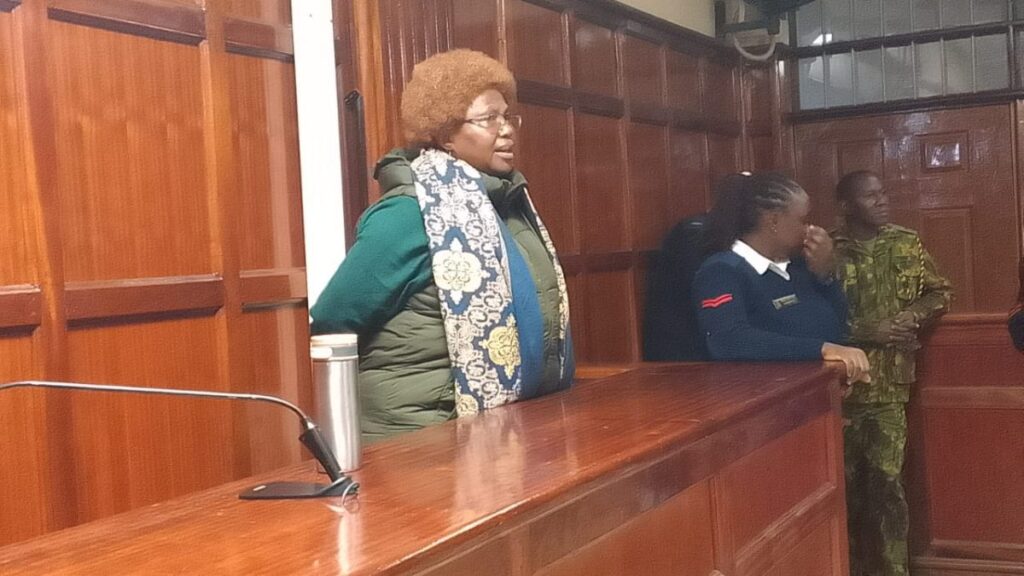Naivasha Member of Parliament Jayne Kihara was on Friday, July 18, 2025, released by a Nairobi court on a personal bond of Ksh50,000 after the prosecution indicated it had no objection to her temporary liberty pending the next procedural step in her case.
The Director of Public Prosecutions intends to charge the legislator with offensive conduct likely to cause a breach of the peace under Section 94(1) of the Penal Code, arising from words allegedly uttered during a public rally in Nairobi on July 8, 2025. The alleged wording is cited in a draft charge sheet, but the defence challenged the validity and clarity of the accusation before any plea could be taken.
Senior Counsel Kalonzo Musyoka together with advocate Ndegwa Njiru urged Milimani Principal Magistrate Benmark Ekhubi not to invite the MP to enter a plea, arguing that the proposed count is unconstitutional, vague and inconsistent with provisions of the 2010 Constitution safeguarding freedom of expression. They submitted that the particulars as framed fail to disclose an offence and fall within protected speech contemplated by Article 33, and that any intended limitation of that right must satisfy the proportionality test set out in Article 24.
Counsel further stressed that, even on the prosecution’s own characterization, the allegation amounts to a misdemeanour; therefore, continued detention or any punitive pre-plea restriction would be unjustified. They contended that without precise particulars linking the alleged utterance to an imminent disturbance, the statutory threshold under Section 94(1) is not met.
The prosecution, represented in court, opposed the defence bid to strike out the charge altogether, maintaining that the matter should proceed in accordance with established procedure. However, it concurred that the count describes a misdemeanour and confirmed it did not oppose reasonable bond terms.
After hearing both sides, the magistrate admitted the MP to a personal bond of Ksh50,000 and scheduled delivery of a ruling on whether the plea will be taken once the court determines the constitutional and procedural questions raised. The forthcoming decision is expected to clarify whether the drafted particulars sufficiently allege conduct outside the protective ambit of free expression and whether the charge meets the legal specificity required before a criminal plea is entered. Defence lawyers emphasized that for Section 94(1) to apply, the prosecution must show words that are threatening, abusive or insulting and likely to provoke immediate disorder elements they argue are absent. The ruling will outline next steps.

